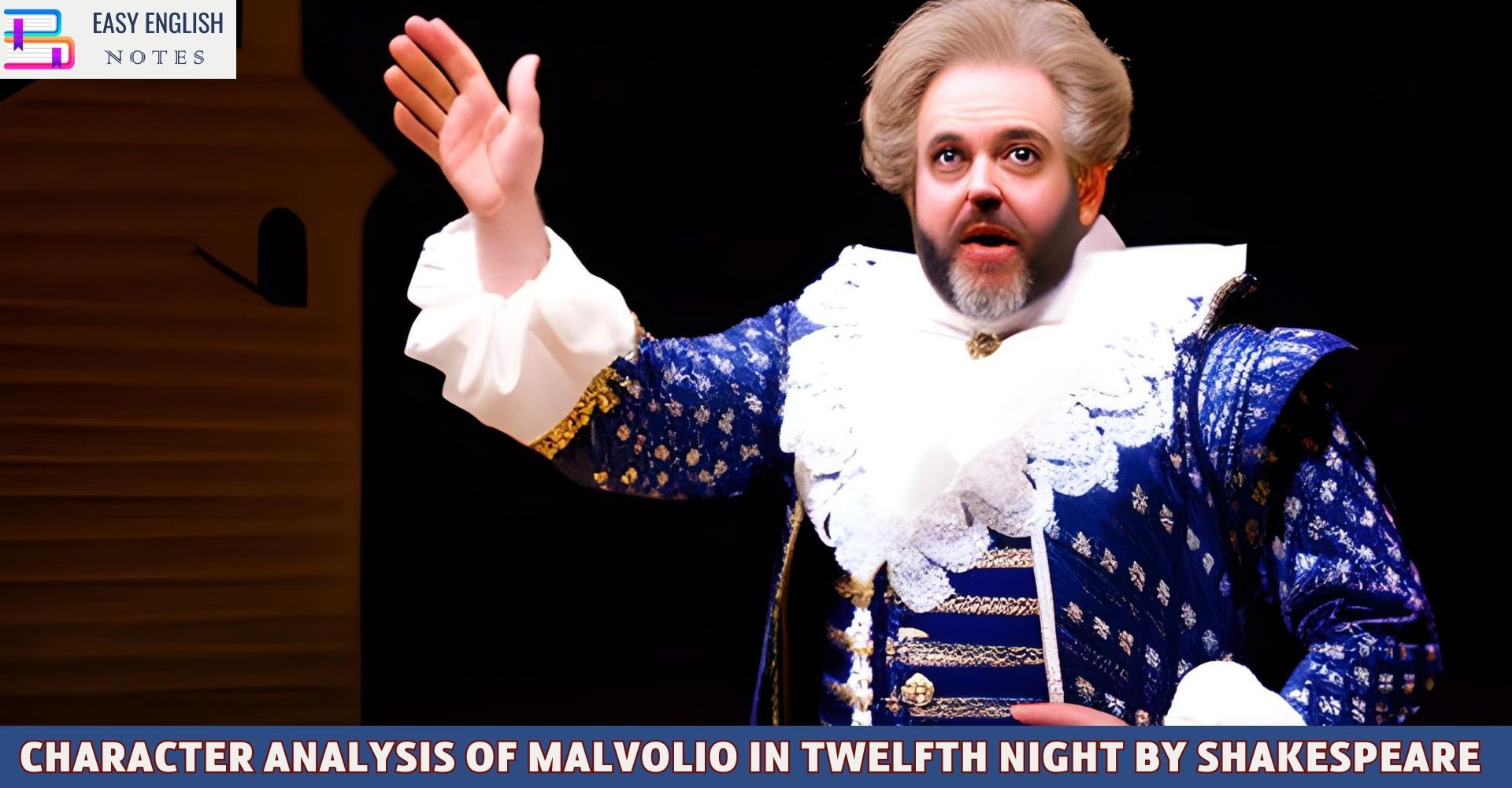Malvolio is a character who becomes comic by accident, and in fact against his natural bent. If we are to appraise him minus the gulling episode we would find traits either that make him stand out as a highly admirable man, or others which make appear stern, even harsh. If we see the traits of his diligence of duty, his ability in managing the affairs of a home, and his impeccable manners and sobriety, we are sure to admire him but along with these traits, he is cold, austere and repelling. His good traits make him endearing to Olivia: his had ones make Sir Toby. Sir Andrew, Maria, Fabian and Feste hate him, and leads to the gulling episode.
Shakespeare manages to balance the two traits and bring in us a somewhat ambivalent attitude towards him.
It is pretty evident that he is very loyal to his mistress, Olivia, for she turns to him in any difficulty, and relies heavily on his discretion. When he is surrounded by his strange midsummer madness, her concern for him is genuine. She orders:
Let some of my people have a special care of him. I would not have him miscarry for the half of my dowry.”
These are significant words, since we have only seen the ridiculous and suffering persona of Malvolio till now. These lines make it clear that Olivia considers him a servant of worth. It is in such little spontaneous touches as this that Shakespeare lets us see his conception of a character. It is evident that Malvolio is not merely the conceited fool that an inferior stage tradition has created; had he been so, Olivia would not have been so concerned about his safety. Unfortunately his good qualities are marred by a “mid-summer madness” and a sickness of “self-love”.
Since self-conceit and humour are incompatible, it is hardly surprising that he does not have any humour whatsoever. He also lacks sympathy for others; in fact he has a positive ill-will towards them. Moreover the vain and the conceited are so engrossed in themselves that they can rarely think beyond themselves. This limits their world. Malvolio takes everything so seriously that he promptly labels everything that lies beyond his own narrow sympathies. are wrong. He thinks carousal and indulgence in “cakes and ale” as a malfunctioning disorder which is not only completely undesirable but also unpardonable. His sensibilities are so dull that the endearing jests of Feste offend him. His nature is such that he elevates every trifle to a misdemeanor.
Then there is not the altogether small matter about his vanity about his good looks and his impeccable manners. He “practices behaviour”, and thinks that his “complexion” would win for him Olivia’s love. He is not concerned about the way he dresses, for he thinks that a grand air, which he calls “the humour of state”, would make him a proper man. He is so engrossed in misplaced sense of his own importance that he rarely if ever seems to be aware that he is not “any more than a steward.” It is this sense of his own importance which makes him think that other persons of the Olivia household are “lighter people” and “idle shallow things”.
Despite his vanity, self-conceit, arrogance, lack of humour, and many other qualities that make him appear ludicrous – even obnoxious-it is surprising that there is so much disagreement that has been provoked as regards his character. This disagreement is mainly over the episode of his “gulling”, which is masterminded by Maria. We are not sure whether to sympathise with him as the victim of an outrageous plot or to enjoy his discomfiture. We do not often know whether to accept him as merely human or farcically grotesque. The truth, perhaps, lies somewhere between the two, as we are torn in different directions in different scenes, as in all of Shakespeare’s best plays.
Also Read :
- Compare Hamlet with Macbeth, Othello and other Tragedies
- “The Pardoner’s Tale” is the finest tale of Chaucer
- Prologue to Canterbury Tales – (Short Ques & Ans)
- Confessional Poetry – Definition & meaning
- Line By Line Explanation Of The Poem The Eve of St. Agnes
The scheme against Malvolio has been viewed in different ways. Though this is of secondary emphasis in the play, the distortion of emphasis is tribute to Shakespeare’s invention of a really unique character. Some critics compare him to Shylock, as an unpleasant person who is still credible and human – so human that his wronging causes in us a kind of discomfiture which is not aroused in us in a lot of more appealing characters. The comparison with Shylock is thus not entirely unreasonable, though it must never be forgotten that Shylock is a menacing danger while Malvolio is a worst a nuisance. Harold Jenkins thinks that “while Shylock is a threat to life itself, Malvolio is a threat to the enjoyment of it.”
The gulling of Malvolio has, with some justification, been called by C.H. Herford as “Johnsonian”. But Sir Andrew is as much of a gull as Malvolio, and Sir Toby is, in Sir Andrew’s opinion, a cheat who exploits his gullibility. Yet the gulling scene is “Johnsonian” entirely in a Shakespearean way. The weaknesses of Malvolio’s character are not so much in abundance that we can criticise him, as they are to make him ripe for the trickery played upon him. And Malvolio’s anger at the end of the play, in no way, diminishes the brightness of the play.
PLEASE HELP ME TO REACH 1000 SUBSCRIBER ON MY COOKING YT CHANNEL (CLICK HERE)











